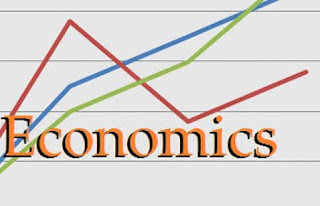The New International Economic Order
International economic is concerned with the effects upon economic activities from international differences in productive resources and consumer preferences and the international institutions that affect them.

The Old Order and the Genesis of the New Order
For quite a long time, the economically developed countries have dominated the world economic scene. The under-developed countries have been highly dependent on the industrialized ones, who have continued to dictate the functioning of the world economy.
The relationship has been like that of master and servant.
Since the second world war, there has been an everwidening gap between the pace of development of the third world countries and the economically developed. Many third world countries have suffered economic decline due to:
- Worsening terms of trade of the underdeveloped countries.
- Manipulation of world commodity prices by the developed countries to their own advantage.
- Frustration of the import substituting strategies of the developing countries by advanced countries.
- Manipulation of the internal policies of the developing countries.
- Domination of the economies of the developing countries through the use of the multinational corporations.
- Heavy dependence of the third world countries on foreign science and technology which are not suited to their needs.
- Political instability.
Demands for a new Economic Order
Recently, there have been demands for a reform of the International economy by the people of the third world as well as by men of conscience in the advanced countries.
They have argued for equity in the sharing of the world resources and are no longer satisfied with the status-quo. They have advocated that there should significant changes in international resource acquisition and transfer, world output, and power sharing between the third world and the advanced countries.
Specific demands which have been made include:
- Liberalization of trade by industrialized nations through the reduction or outright elimination of tariffs in imports from the third world.
- Raising and stabilizing export earnings from primary products of the developing countries through commodity agreements such as indexing the prices of the primary products to prices of manufactured goods.
- Formulation of policies to control the activities of the multinational corporations in the developing countries.
- Reforms aimed at increasing the participation of the third world countries in the decisionmaking process of world organizations.
- Increasing the share of the developing countries in industrial production as a means of improving their terms of trade.
- Facilitating a genuine transfer of technology from the industrialized nations to the developing nations.
- Commitment of a specified percentage of their GNP by the industrialized nations as aid to the third world countries.
- Making Special Drawing Rights (SDR) the major international reserve asset and its issuing to be based on development needs rather than on the IMF quota of various countries.
- Payment of compensation to the under-developed countries whose economies were plundered recklessly by the advanced countries.
Need for a new International Economic Order
- The need for a new order in international economic relations is based on the fact that no country is an’ island by itself. The development of all nations is intimately bound.
- The advanced countries cannot go too far without co-operation with the third world countries which are the primary producers of raw materials.
- The third world countries require the market of the industrialized nations for the sale of their primary products, while the advanced countn’es require the market of the developing countries.
- Genuine cooperation is required of the two parties since none of them can totally dominate the world economy without provoking harmful retaliatory measures. There is a need for a new economic interdependence.